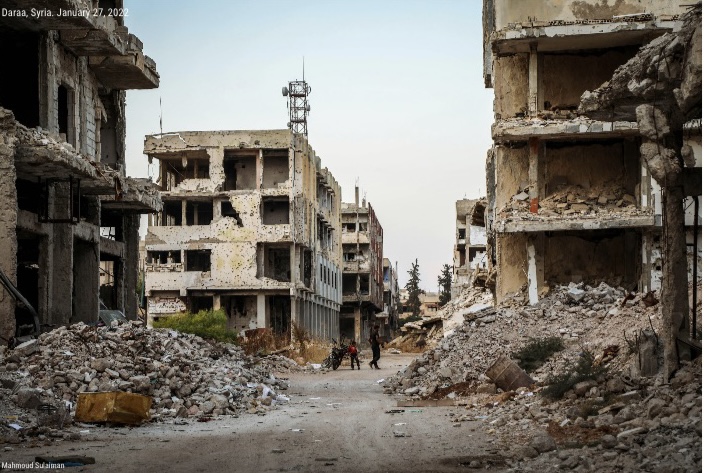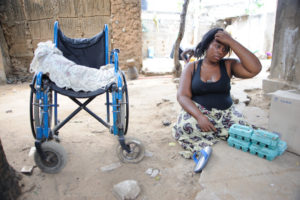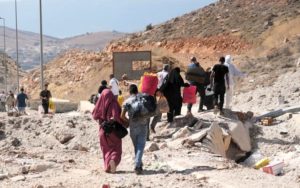
Summary
This article will discuss the journey of the 2022 Political Declaration on the Use of Explosive Weapons in Populated Areas (EWIPA). Although the Declaration has been signed by 85 states to date after several years of negotiation, recent examples of armed conflict in populated areas in Gaza and Ukraine have shown that the Declaration has been ineffective in halting the disproportionate impact of EWIPA on civilians. Indeed, civilians account on average for 90% of casualties resulting from explosive weapons in populated areas (OCHA); not to mention the long-term effects on essential infrastructure and human rights. The article is written in the context of the follow-up conference in Oslo in April 2024 and identifies the main priorities of this conference, notably the universalisation of related political obligations, the implementation of the Declaration with the establishment of clear criteria and precise timelines for each state, as well as inclusive methodologies specific to each situation, population, and conflict. It also emphasizes the need for a diversity of voices, including youth, in the discussion around these goals.
Introduction
Various state and non-state actors have been concerned about the devastating impact on civilians caused by the use of explosive weapons with wide area effects in populated areas during modern conflicts. In 2022, these concerns were formarlly expressed with the adoption of the Political Declaration on Explosive Weapons in Populated Areas (EWIPA), to which 85 states have signed up so far.
I) The Need to Enhance Civilian Protection from EWIPA Beyond International Humanitarian Law
Not only do these explosive weapons have a direct impact, causing deaths and injuries due to their explosion and fragmentation, but they also have reverberating effects such as long-term trauma. In Jordan, 80% of the Syrian refugees injured by explosive weapons, particularly children, experience severe psychological distress, with two out of three unable to carry out essential daily activities due to their emotional state (HI, 2016, ‘Syria A Mutilated Future’). Between 2021 and 2022, conflicts in Ukraine, Afghanistan, Yemen, and Myanmar contributed towards an 83% increase in civilian casualties, before the current situation in Gaza even began.
But why is a specific political declaration on EWIPA necessary? Why is international humanitarian law (IHL) insufficient to protect the rights of civilians in populated areas? Despite the rules set out in the Geneva Conventions of 1949 to govern the conduct of hostilities, numerous actors openly disregard the requirements of proportionality and distinguishing combatants from civilians.
The gap between humanitarian law and its implementation underscores the urgency for political action to secure and enhance compliance with IHL. Each year, the UN Secretary-General highlights the significant humanitarian challenge posed by EWIPA, urging states to halt its devastating effects. This appeal has particular force this year in the context of the situation in Gaza that has become a ‘graveyard for children’, mostly due to the use of EWIPA.
The 2022 Declaration serves not only to remind states of their responsibility to uphold international humanitarian law but also to focus attention on this pressing issue, as it stresses ‘the imperative of addressing the short and long-term humanitarian consequences resulting from armed conflict involving the use of EWIPA’ (Preamble, 1.9). Additionally, it lays the groundwork for establishing regional and global networks aimed at promoting best practices to mitigate the impact of EWIPA in its call to ‘strengthen international cooperation and assistance among armed forces and other relevant stakeholders’ (Section 4, 4.1).
Such a Declaration aims to promote concrete actions, set strong international standards, provoke policy changes, and guide military actions. The Declaration should also now facilitate the sharing of data on states’ compliance with humanitarian principles related to EWIPA, considering both direct and indirect effects, while adopting a culturally sensitive and gender-specific approach to support all victims appropriately.
II) The Oslo Conference
For the first time since the launch of the Political Declaration in Dublin in November 2022, states will meet in Oslo this April for a follow-up conference. Bringing together senior state and military officials alongside experts from international and regional organisations, civil society, academia, and the private sector, this meeting aims to take stock of the Declaration’s implementation. It will indeed prove a crucial moment to continue the momentum in efforts to reduce civilian harm resulting from EWIPA, with discussion primed to focus on the opportunities and challenges of the current geopolitical climate alongside the framework for future follow-ups.
The Oslo Conference, however, is also an opportunity to achieve a lot more. With a second key aim constituting the ‘fostering of cooperation between States and other participants to promote awareness of the Declaration and to ensure that it gains more support’ in the years to come, the meeting presents an unmissable opportunity for those states yet to sign to announce their formal endorsement. Whilst the current list of 85 signatories is a notable achievement, more progress is essential, for it is only by developing a shared international stigma and community of practice against the use of EWIPA that civilians will truly be protected. With endorsements particularly lacking in Asia and Africa, regional outreach efforts and strong local leadership will be crucial in increasing the number of signatories.
Yet, attracting new signatories also relies upon the credible leadership of existing supporters of the Declaration, which brings us to the issue of implementation. As a purely political declaration that falls short of binding states into legal obligations, many signatory states have circumvented commitments outlined in the Declaration in light of the current global context. The Oslo Conference is an opportunity for stronger implementation frameworks to be established amongst the community, and for civil society actors to call out those states lagging behind on their public commitments. Through national outreach activities, organising workshops for militaries to coordinate with governments, and advocating for greater access to transparent disaggregated data, so may civilian protection and victim assistance efforts take an essential step forward.

III) Ensuring Participation of Affected Communities in the Political Declaration: The Example of the Youth Seminar 2024
Given the absence of a reporting mechanism tied to the Declaration, it is essential to involve all stakeholders in discussions through regular meetings, conferences, and training sessions, not only with states and military experts but also civil society representatives. These platforms foster a deeper understanding of the Declaration and its issues, and facilitate collaborative efforts with state actors, international organisations, civil society groups, and individuals toward its strengthening.
Ensuring meaningful and comprehensive engagement of states with the Declaration requires shifting from a national security to a human security perspective. This involves bringing the experiences, urgent needs, and demands of affected individuals into the discussion. Including participants from diverse backgrounds and linguistic communities in these meetings is key to ensuring the universality of the Declaration and its effective implementation.
Mines Action Canada took a proactive step in this direction by organising an in-person youth seminar in London in February 2024. The event brought together young activists aged 18 to 30 from 14 different countries, including Nigeria, Pakistan, Ukraine, Syria, Sudan, and the Philippines. Many of these participants had firsthand experiences of EWIPA’s devastating effects.
The seminar served as a platform for exchanging advocacy and communication strategies, sharing personal narratives and best practices, and learning from NGO representatives and experts working in the field. Recognising the pivotal role of youth in shaping the future, the seminar aimed to empower a generation that bears the burden of EWIPA’s impact in terms of health, socio-economic opportunities, and sustainability. Their resilience and determination highlight the potential for positive change.
In light of the upcoming Oslo Conference, participants in the seminar took the opportunity to draft a Youth Declaration to be presented to delegates. This Youth Declaration calls for concrete action on restricting the use of EWIPA, which should be ‘subject to the highest presumption of non-use’ (UNODA), and addressing the damages that have been caused to civilians and infrastructure. It urges states to endorse the Political Declaration and to implement its principles with an intersectional, inclusive, and well-informed approach. The Youth Declaration also invites states to enhance international cooperation and unequivocally condemn all forms of use of EWIPA, emphasizing the moral imperative of showing solidarity with affected communities.
The Political Declaration is a fundamental step in bridging the gap between international humanitarian law and practices when it comes to protecting civilians from EWIPA. However, its goal has not yet been achieved. More states must commit to their moral and political obligations, and those who have already done so must now turn their words into action.
About the authors:
Marie Leveille and Joshua Jones are UAI volunteers who attended a Youth Seminar on EWIPA, organised by Mines Action Canada in February 2024.
The content is the authors’ responsibility alone and does not necessarily reflect the views of United Against Inhumanity or any of its other members.











